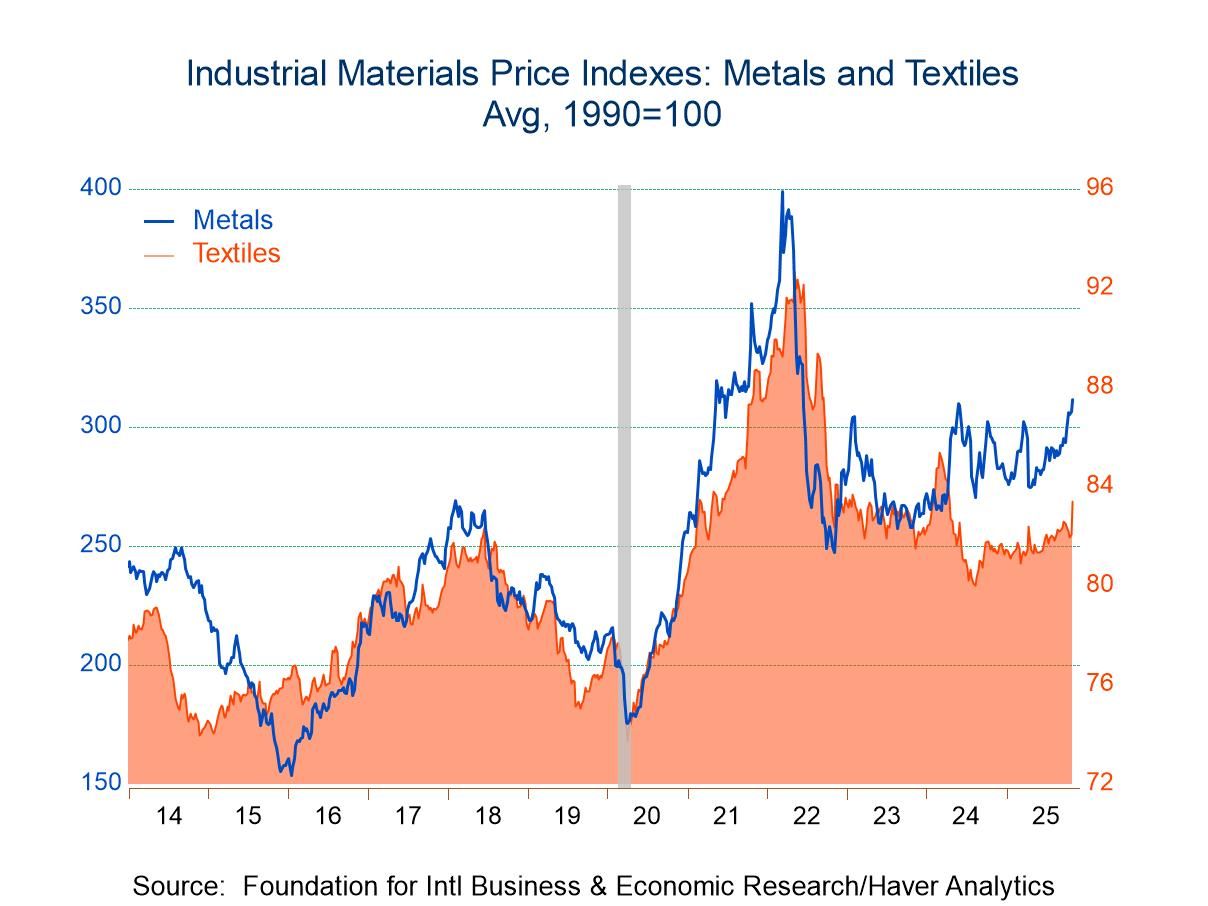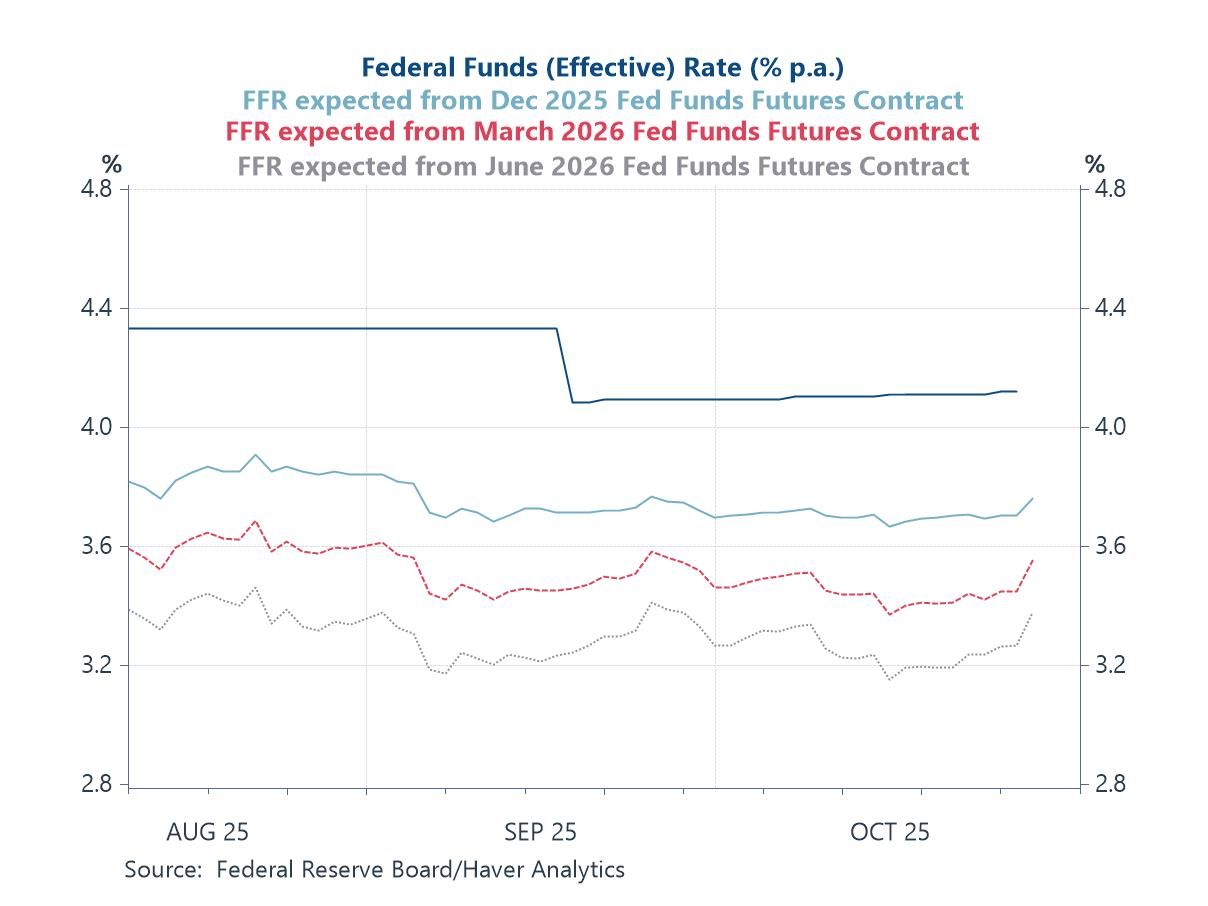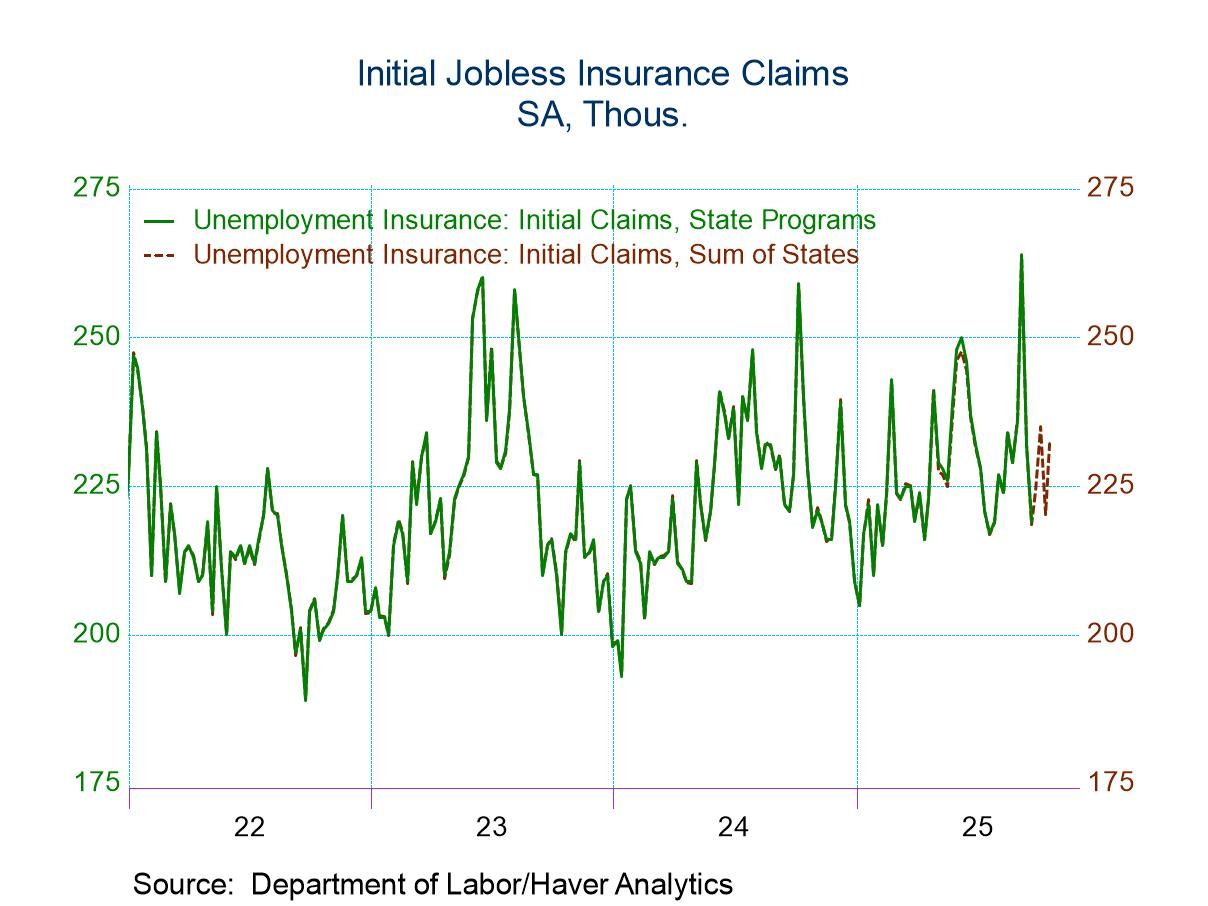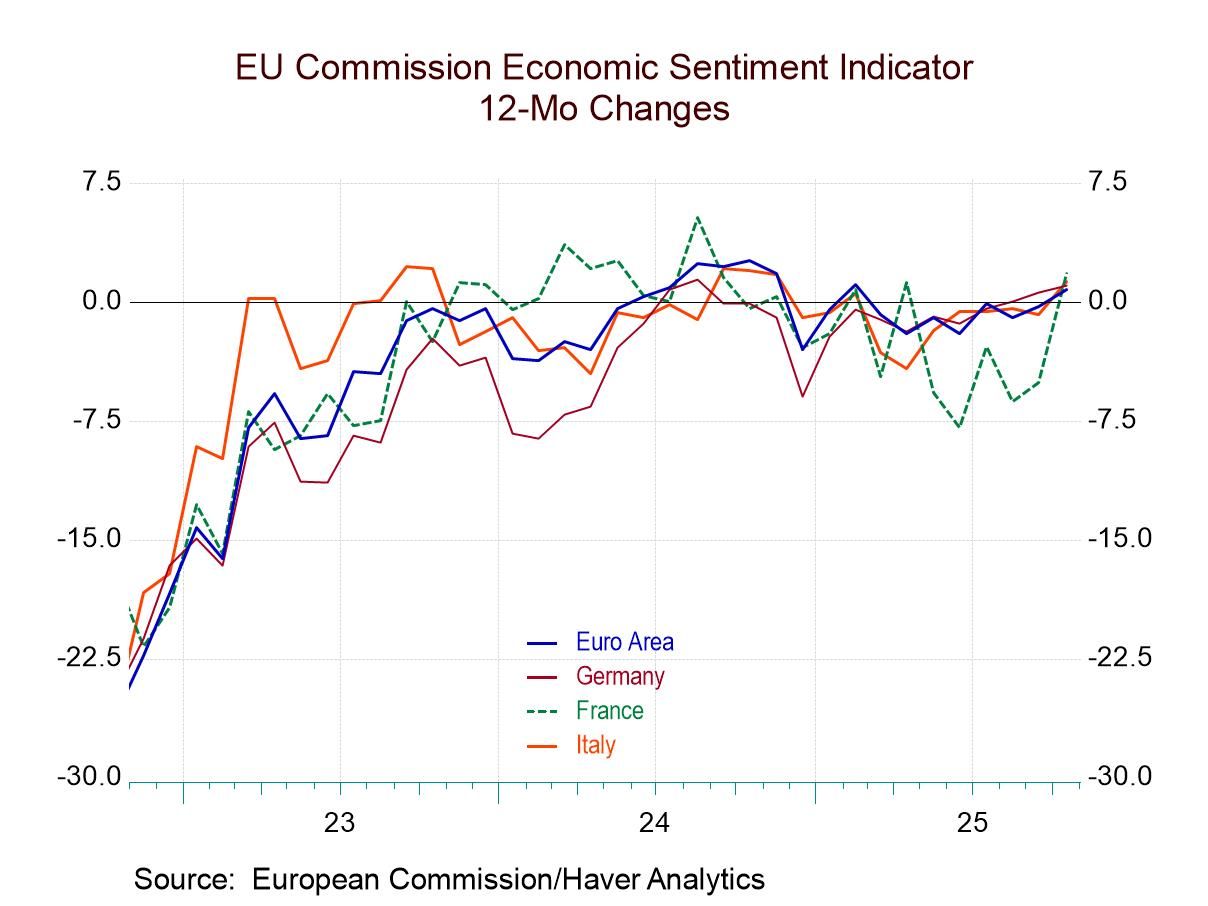 Global| May 22 2008
Global| May 22 2008U.S. Initial Unemployment Insurance Claims Fell
by:Tom Moeller
|in:Economy in Brief
Summary
Initial claims for unemployment insurance fell a more-than-expected 9,000 last week to 365,000, reversing the prior week's little revised 6,000 rise. The latest figure is for the week when the Bureau of Labor Statistics surveyed May [...]
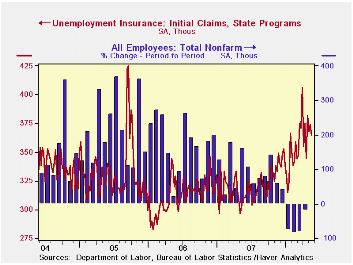
Initial claims for unemployment insurance fell a more-than-expected 9,000 last week to 365,000, reversing the prior week's little revised 6,000 rise.
The latest figure is for the week when the Bureau of Labor Statistics surveyed May nonfarm payroll employment. Claims rose 20,000 (5.8%) from the April survey period.
The four week moving average of initial claims rose week-to-week to 372,250 (22.1% y/y). Claims averaged 364,000 during April.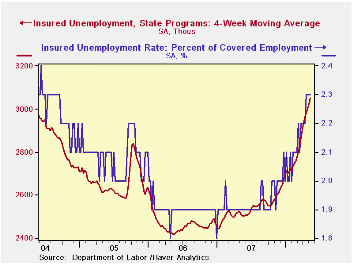
A claims level below 400,000 typically has been associated with growth in nonfarm payrolls. During the last ten years there has been a (negative) 76% correlation between the level of initial claims and the m/m change in nonfarm payroll employment.
Continuing claims for unemployment insurance were unchanged after an upwardly revised increase of 41,000 during the prior week and that increase was revised up. The latest level was the highest since March 2004. It provides some indication of workers' ability to find employment.
The figures for continuing claims lag the initial claims figures by one week.
The insured rate of unemployment held steady at 2.3% for the fourth consecutive week. That was the highest since 2004.When Motivation Means Opportunity: Training for Real Jobs from the Federal Reserve Bank of Boston can be found here.
| Unemployment Insurance (000s) | 05/17/08 | 05/10/08 | Y/Y | 2007 | 2006 | 2005 |
|---|---|---|---|---|---|---|
| Initial Claims | 365 | 374 | 17.4% | 321 | 313 | 331 |
| Continuing Claims | -- | 3,073 | 22.3% | 2,552 | 2,459 | 2,662 |
Tom Moeller
AuthorMore in Author Profile »Prior to joining Haver Analytics in 2000, Mr. Moeller worked as the Economist at Chancellor Capital Management from 1985 to 1999. There, he developed comprehensive economic forecasts and interpreted economic data for equity and fixed income portfolio managers. Also at Chancellor, Mr. Moeller worked as an equity analyst and was responsible for researching and rating companies in the economically sensitive automobile and housing industries for investment in Chancellor’s equity portfolio. Prior to joining Chancellor, Mr. Moeller was an Economist at Citibank from 1979 to 1984. He also analyzed pricing behavior in the metals industry for the Council on Wage and Price Stability in Washington, D.C. In 1999, Mr. Moeller received the award for most accurate forecast from the Forecasters' Club of New York. From 1990 to 1992 he was President of the New York Association for Business Economists. Mr. Moeller earned an M.B.A. in Finance from Fordham University, where he graduated in 1987. He holds a Bachelor of Arts in Economics from George Washington University.



